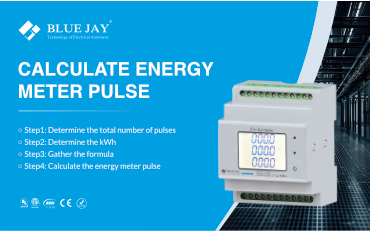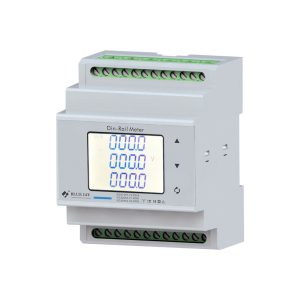
Technology of Electrical Automatic

Energy meter pulse calculation is a straightforward but essential process in understanding energy consumption accurately. Each pulse produced by an energy meter indicates a specific amount of consumed energy. Knowing how to interpret and calculate these pulses is crucial for effective energy management, whether for residential, commercial, or industrial applications. This article will guide you step-by-step on what energy meter pulses are, the formula used for calculation, and the process for calculating them in real scenarios.

An energy meter pulse is a digital signal generated by an energy meter to indicate a set quantity of energy consumption, typically in watt-hours (Wh). This pulse acts as a unit of measurement, allowing consumers, technicians, and energy providers to quantify energy consumption. For example, each pulse might represent 1 Wh or another predetermined amount. By counting these pulses over time, one can calculate the total energy consumed within a specific period.
The basic formula for calculating the energy meter pulse is:
EMP=P/kWh
Variables of the energy meter pulse formula:
This energy meter pulse formula states that to determine the pulse rate, you divide the number of recorded pulses by the total energy consumed in kWh.
Here’s a step-by-step guide to calculating the energy meter pulse:
Start by identifying the total number of pulses recorded by the energy meter over a specified period. This information is typically provided on the meter display or output log. For example, if your energy meter has registered 500 pulses over a certain period, then P=500P = 500P=500.
Next, determine the total kWh of energy consumed in the same period. You can obtain this from the energy meter or an energy consumption report. Suppose the meter shows a total consumption of 10 kWh, then kWh=10\text{kWh} = 10kWh=10.
Now that you have both the total pulses (P) and the total kWh, apply them to the formula:
EMP=P/kWh
Substitute the values into the formula and solve. Using our example values:
EMP=50/100=50pulses/kWh
So, the energy meter pulse rate is 50 pulses per kWh.
After calculating, you may use an energy meter pulse calculator or perform a manual check to ensure the result is accurate. A pulse rate of 50 pulses/kWh means that for every 1 kWh of energy consumed, the meter will produce 50 pulses.
Energy meter pulse calculation is a simple but essential process that translates digital pulse counts into measurable energy units. By following these steps—identifying total pulses, determining energy consumed, applying the EMP formula, and verifying the result—users can gain a clear understanding of their energy consumption. This knowledge can be invaluable for energy management, cost-saving, and efficient energy use.




